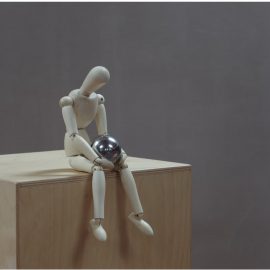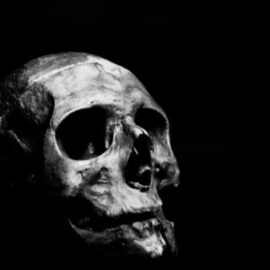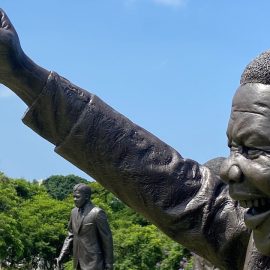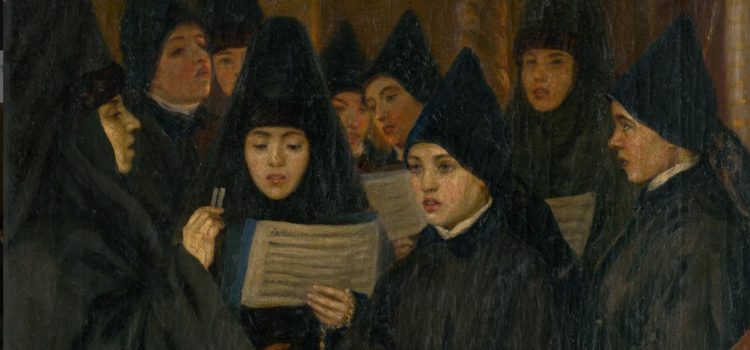
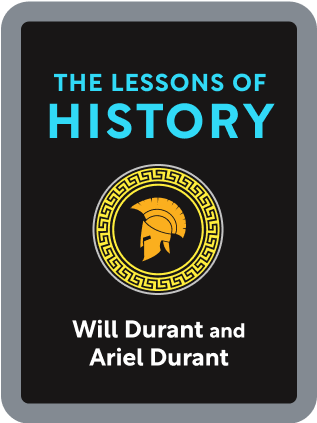
This article is an excerpt from the Shortform book guide to "The Lessons of History" by Will Durant and Ariel Durant. Shortform has the world's best summaries and analyses of books you should be reading.
Like this article? Sign up for a free trial here .
What is the role of religion in society? What function has it served throughout the ages?
History tells us that religion is a constant. At times, it has provided personal comfort, social stability, and moral guidance. At other times, it has been used as a tool for abusive power. The role of religion in society provides a fascinating history.
Read more to learn about the role of religion in society through the ages.
Religion Is a Constant
While the role of religion in society at a given time might be different from the role it plays at other times, religion has always been present. Even the agnostic historian has to acknowledge that religion has functioned and been seemingly indispensable in every land and age. The authors note that our society is exceptional in history for maintaining moral conduct without the ubiquitous force of religion. Before our time, there is no significant example of a stable society without religion.
The role of religion in society has often been a beneficial one. Religion has enabled stability by elevating agreements between humans to rigid promises to God.
Religion has provided hope for billions of people – even the unhappy, the suffering, the bereaved, the old enjoy “supernatural comforts” more soothing than any material benefit.
Said Napoleon, religion kept the poor from murdering the rich. For many, hope and faith may be the only thing preventing despair. Destroy that hope, and you risk triggering class war.
Mankind seems to desire a religion rich in mythology, mystery, and miracle.
The Rise and Fall of Religion
In the earliest formation of religion, gods seem to have been created to explain natural events (earth, water, winds, sky), without a clear moral purpose. Spurred by fear of the vagaries of the natural world, religion became the worship of natural forces.
Gradually, religion included moral prescriptions for human behavior that were handed down by gods. Religion provided general social stability, providing paths for conflict resolution through courts and softening penalties exacted by barbarian law.
In so doing, religion became a useful ally/servant of the state.
- Yahveh gave the 10 commandments to Moses; Thoth gave law to Menes in Egypt; Shamash gave Hammurabi a code for Babylonia.
- Religion was used to justify the position of rulers (as in pharaohs and kings) – setting up clear perverse incentives.
- Religion always tried to maintain clear precedence over the state, however, claiming a super-national court to which all rulers were morally responsible.
But the role of religion in society isn’t always a beneficial one. As with all humans, religious leaders can be weak, leading to a variety of abuses of power:
- Religion was used to justify the Inquisition, holy wars, and the Crusades. (Shortform note: no doubt the actions were publicly advertised with the intent of spreading the gospel, but with the underlying incentive of accreting more power and followers and suppressing dissent.)
- Political kings forced the Church into hypocritical acts, like dissolving the Jesuit order.
- The Church committed fraud through bogus relics and dubious miracles; “False Decretals” forged documents to give historical credence to “papal omnipotence.”
- The Church played little part in the abolition of slavery, which the authors considered the hallmark achievement of modern morality.
The recurring nature of abuses triggered skepticism of religion, contributing to its declining influence over the past centuries.
Other forces also weakened religion’s foothold:
- Religion once explained the supernatural. Science increasingly began explaining the supernatural, thus decreasing the reliance on religious explanations. It began with the Copernican model of the solar system, then increasingly explained life, disease, natural disasters, and other seeming vagaries of life.
- Christianity splintered into Protestant sects.
- The Bible no longer continued being viewed as a single sacred text. Critics suggested the Bible was written not by one author (Moses) but rather was the work of many people over centuries.
- As communication with other societies became easier, exposure to other cultures with similar but different religions caused dissonance. If different religions all believe there is one true sacred text, but that text differs across religions, then does such a text really exist?
- For some religions, exposure to other religions also caused dissonance around the idea of a vengeful God. If your religion argues that non-believers are predestined to everlasting hell, and there are billions of such people, is your religion correct in condemning a large fraction of the world?
The role of religion in society was a functional one. It included education, moral codes, and laws. But as society stabilized and civilization grew more complex, secular alternatives arose to substitute for religion’s functions:
- Education formerly done by priests became done by secular teachers.
- Supernatural moral codes were replaced by propaganda of patriotism, capitalism, or Communism.
- Religious conceptions of crime and punishment were replaced by due process of law.
Religion Persists
Despite its erosion, religion survives because it inspires imagination and hope. It “consoles and brightens the lives of the poor” and those “wearied with the uncertainty of reason.” As long as there is poverty, the authors argue, there will be religion.
Religion has a habit of resurrection, being periodically destroyed by the state or philosophers, but it becomes reborn in different forms.
There is a cyclical nature to religion. In periods when laws are feeble and society is weak, religion and morals shoulder the task of maintaining social order. As law and government stabilize and shoulder the load, skepticism allows religion to retreat to the background.
- Communist states have dissociated themselves with religion, and the “success of this experiment in Russia” (Shortform note: and more recently, in China) suggests the replacement of religion with Communism or capitalism.
- Should these states fail to destroy mass poverty, to reduce mass discontent, the state may once again invoke the use of supernatural beliefs as an aid for social stability.
The authors conclude that history does not support a belief in God as a benevolent supreme being, given the various natural and man-made atrocities unleashed on human life. It may instead support a theological dualism wherein a good spirit and an evil spirit battle for control of the universe.
And nature and history, in any case, have a different conception of good and bad. Good is what survives; bad is what does not. Nature and history do not favor Buddha over Genghis Khan.
The role of religion in society changes through time and from place to place, but history has shown us that religion is a constant societal element and a force for good or bad.

———End of Preview———
Like what you just read? Read the rest of the world's best book summary and analysis of Will Durant and Ariel Durant's "The Lessons of History" at Shortform .
Here's what you'll find in our full The Lessons of History summary :
- What we can learn from studying 5,000 years of history
- How human nature hasn’t changed over thousands of years
- Why all civilizations, including ours, fall, and why we shouldn’t cry about it



